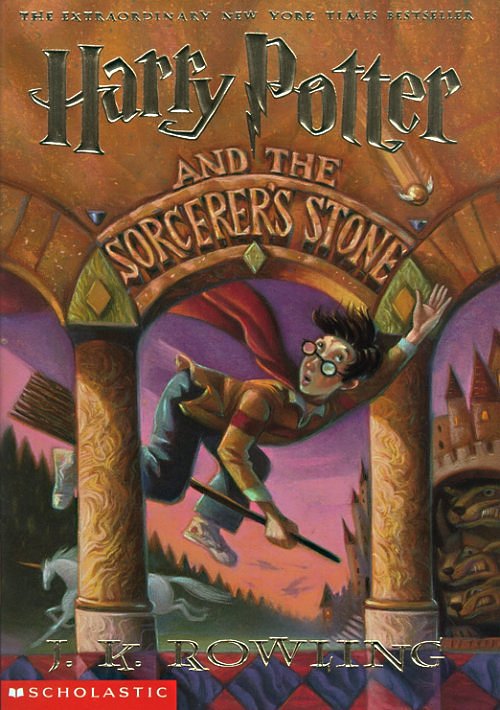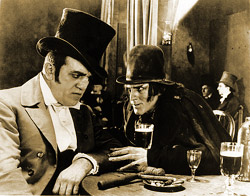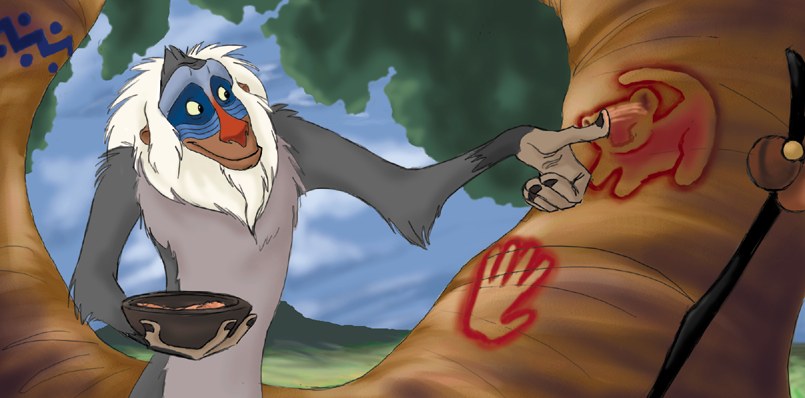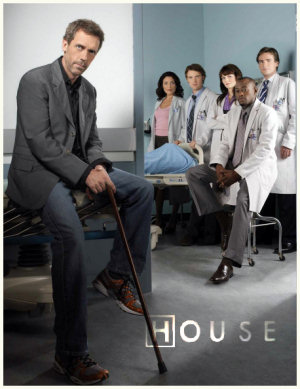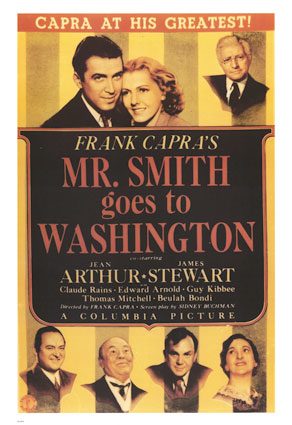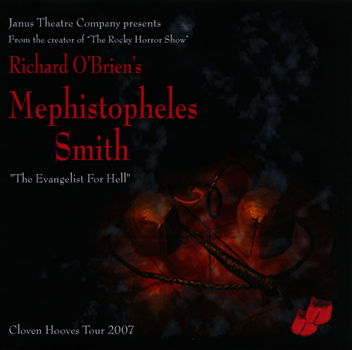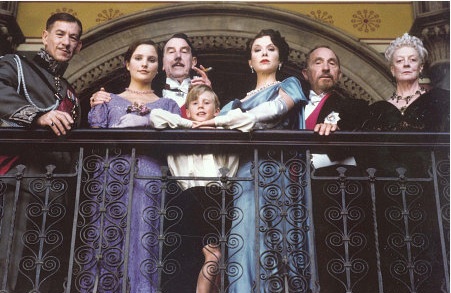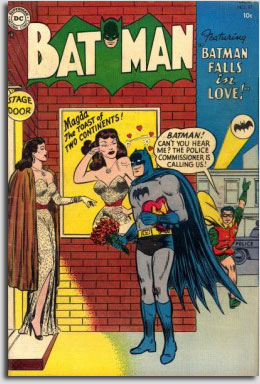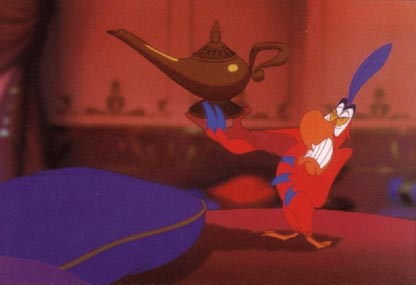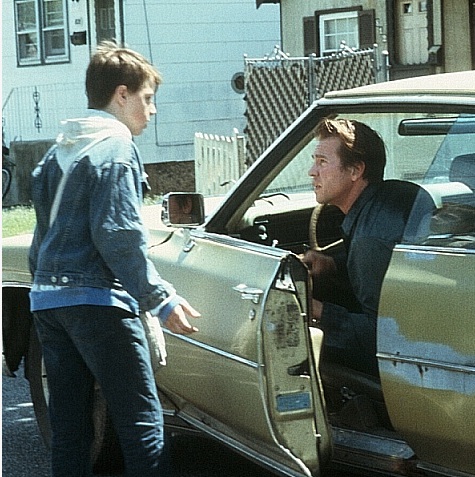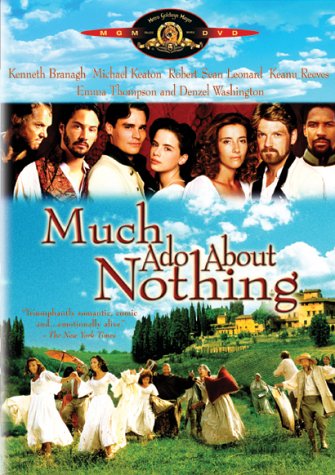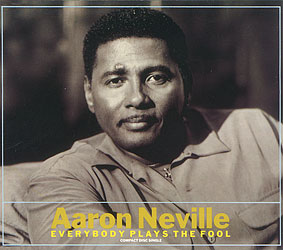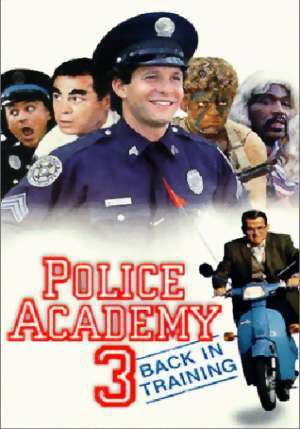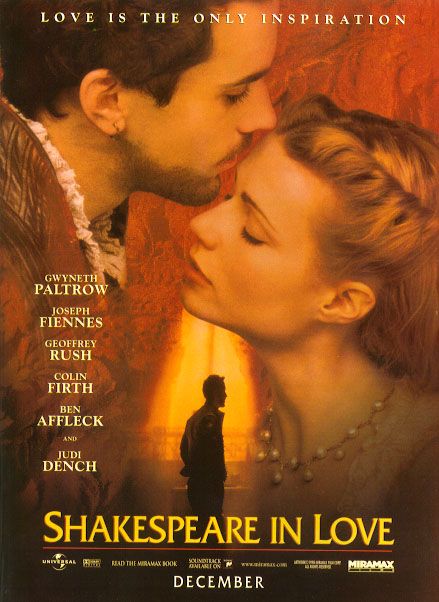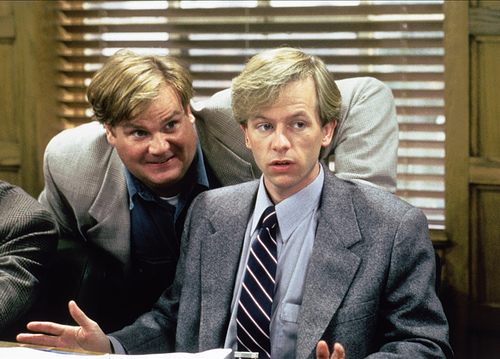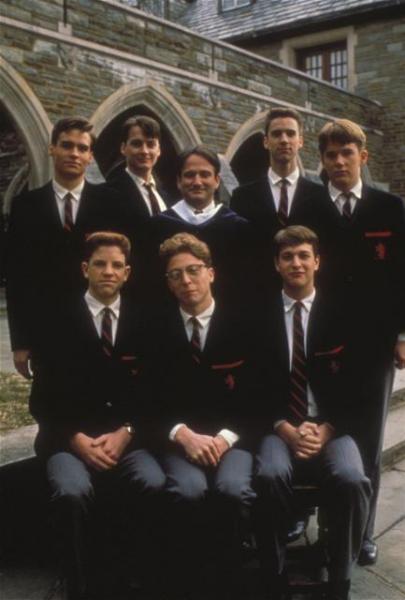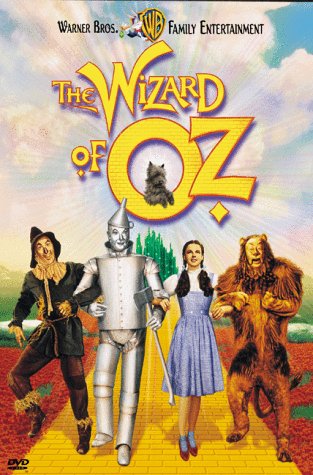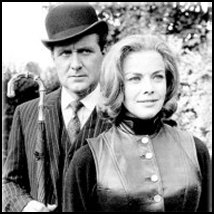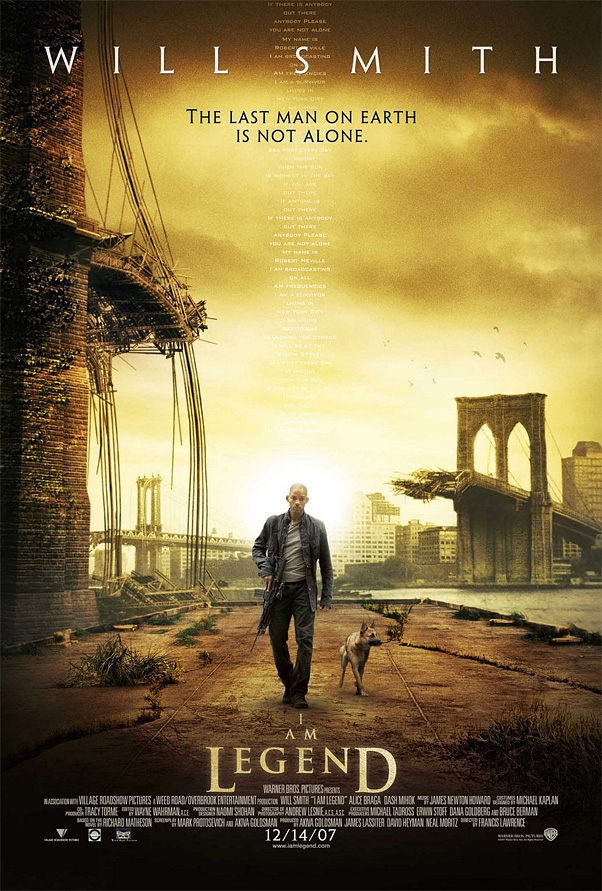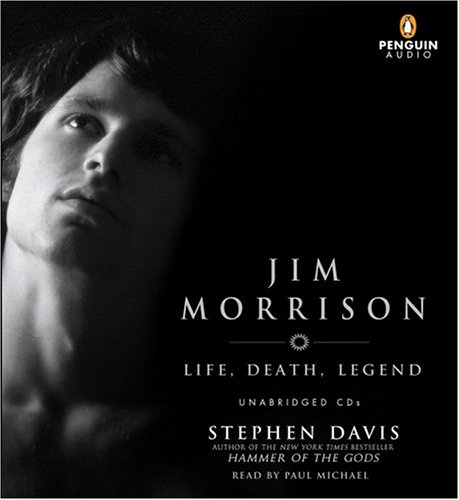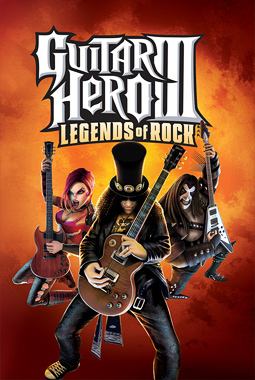Via News on the Rialto, we learn of an international event called Shakespeare 24:
Shakespeare 24 (S24) is an exciting worldwide Shakespeare performance event. Beginning in New Zealand and ending 24 hours later in Hawaii. 60 youth groups will stage 30 and 45 minute adaptations of Shakespeare’s plays at 7pm, local time on Shakespeare’s 444th birthday, April 23rd 2008.
It all sounds very exciting, but I have to admit that when I first saw the title of the post, I had something else in mind entirely…
MEMO: CONFIDENTIAL
SEASON SEVEN PLOT OUTLINE FOR SHAKESPEARE 24
In a prologue, Jack Bauer asks for the audience’s generosity in accepting the extremely contrived plot in the season to come, and informs them that the following events take place between 8am and 9am.
8:00am – 9:00am: On his way home from a mission, Jack is stopped by three witches, who offer cryptic prophecies of a terrorist attack to take place in the next 24 hours. After he threatens them with a belt sander, they agree to get more specific. The attack will come in the form of a virus that makes the infected people seem like they are dead for a short period of time, after which they will be perfectly fine. Jack doesn’t think that sounds so bad, but the witches assure him that it can actually cause quite a bit of trouble.
9:00am – 10:00am: In the White House, Sandra Palmer is now president. She is having drinks with a group of community activists, when she realizes that one of them is Richard Heller, long lost son of the former Secretary of Defense. She immediately welcomes him into her cabinet as the new Secretary of Defense.
10:00am – 11:00am: Richard is installed as the new Secretary of Defense. He makes a phone call and tells the person on the other end that the plan is working and that he will be president by the end of the day. Sandra Palmer mysteriously dies of a poisoning.
11:00am – Noon: The vice president is sworn in as president. The Speaker of the House, suspicious of the poisoning, leads a campaign against him.
Noon – 1:00pm: Jack is visited by the ghost of his father, who tells him there is a mole in CTU, and that Jack shouldn’t trust anyone. Jack appoints his most trusted lieutenant, Agent Iago, to head up the investigation.
1:00pm – 2:00pm: The president is impeached, and the Speaker of the House is sworn in as president. The former president is imprisoned and is later killed by henchmen working for Richard. Iago puts a suspicion in Jack’s mind that Chloe is the mole.
2:00pm – 3:00pm: The president is alerted to the terrorist threat, and must cancel his trip to the Holy Land. He asks Jack to track down the leader of the cell. Jack traces the money trail to a Jewish moneylender near Venice Beach.
3:00pm – 4:00pm: Jack arrives at the moneylender’s place, and tries to interrogate him, but kills him accidentally. He finds three caskets, and knows that two of them are rigged with explosives, and he must select the correct casket to find out the location of the terrorist base. With some help from the moneylender’s daughter, he chooses correctly.
4:00pm – 5:00pm: The president is assassinated by a sniper, hired by Richard. The president pro tempore of the Senate is sworn in as president. He gives a rousing speech and then orders an air strike against the terrorist base located by Jack, but the terrorists are tipped off by Iago – the mole in CTU. During the phone call, we finally see the leader of the terrorist cell is Jack’s nephew, Josh Bauer. Josh escapes with his top henchmen before the air strike hits.
5:00pm – 6:00pm: The president is killed by a bomb planted by Richard, and the Secretary of State is sworn in as president. Jack learns from aerial surveillance footage of the strike that his nephew is involved in the terrorist plot. The new first lady discovers that Richard is a terrorist and tries to warn everyone, but she is dismissed as mentally unstable. She puts a curse on Richard, and calls Jack to tell him of Richard’s involvement. Then, she disappears.
6:00pm – 7:00pm: The president dies in what appears to be an automobile accident. The Secretary of the Treasury is sworn in as president. Jack goes to the White House to stop Richard.
7:00pm – 8:00pm: The president is killed. Jack is framed. Richard is sworn in as president. Jack is sentenced to death by a secret military tribunal.
8:00pm – 9:00pm: Chloe pleads to Richard, who is now the president, for Jack’s life. Richard agrees to sign a pardon for Jack if she will sleep with him. She agrees, planning to substitute a double, but the only match in the CTU database is Jack’s daughter, Kim Bauer. At first, Jack refuses to allow her participation, but when he realizes he will die otherwise, agrees to go along with the plan.
9:00pm – 10:00pm: Before she can follow through with the plan, Kim appears to die of the virus. Richard has her put in a trunk and dropped into the ocean.
10:00pm – 11:00pm: Kim washes ashore and is recovered by the owner of a brothel and his wife. Some other stuff happens, but nobody really cares. Josh gives a canister of the virus to a mercenary and asks him to attach a timing device set to release the virus at 7am.
11:00pm – Midnight: Not knowing who she can trust, Kim tries to make her way to CTU disguised as a boy, which makes her look exactly like her cousin Josh.
Midnight – 1:00am: Kim is approached by the mercenary who has completed the timing device. He gives it to her, believing she is Josh. Kim returns to CTU with the canister where she is again mistaken for Josh and arrested immediately.
1:00am – 2:00am: Jack escapes custody and heads back to CTU disguised as a bedlam beggar. Kim is interrogated by CTU agents who still believe she is Josh. The mercenary finds the real Josh, and demands payment for the timing device. Josh refuses, insisting he never received it. Hilarity ensues, and then Josh kills the mercenary.
2:00am – 3:00am: Jack and Kim reveal their disguises. Mischievous fairies put a spell on Chloe, who falls in love with Iago. Jack leaves to confront his nephew.
3:00am – 4:00am: Jack captures Josh, and discovers evidence on Josh’s cell phone that proves the mole inside CTU is Iago. He calls Chloe to tell her Iago is the mole. Chloe goes mad, sings a song, and drowns herself in a river.
4:00am – 5:00am: Jack returns to CTU to confront Iago, who at first refuses to speak until he is given immunity, but then confirms that Richard has been responsible for the day’s events. Josh reveals that Jack is his real father, and it was his bitter resentment over his bastardy that made him turn to a life of crime.
5:00am – 6:00am: Kim learns that Josh is not her cousin, but her half-brother, and goes to see him. Josh, moved by his half-sister’s compassion, repents. Jack goes to the White House and slips past Secret Service to confront Richard. Jack and Richard fight, and Richard is slain. Before he dies, he not only confesses to his crimes, but also provides a recap of the entire plot for the season.
6:00am – 7:00am: Messengers from CTU arrive at the White House and report that Josh has had a religious conversion, and has revealed the location of all of the canisters, except for the one he gave the mercenary. Jack realizes that the canister Kim was carrying is equipped with a timing device, and rushes back to CTU. The Attorney General is sworn in as the eighth president in the last twenty-four hours.
7:00am – 8:00am: Jack gets to CTU, but it is too late. Everyone at CTU has fallen to the virus. Jack, believing he has failed, delivers a monologue on the meaningless nature of brief life and commits suicide. After he dies, everyone wakes up from the virus and, seeing Jack dead, kill themselves. The new president arrives at CTU to give Jack a medal. He sees all of the bodies and laments the tragic events of the day. He then pledges to restore peace to the nation.

